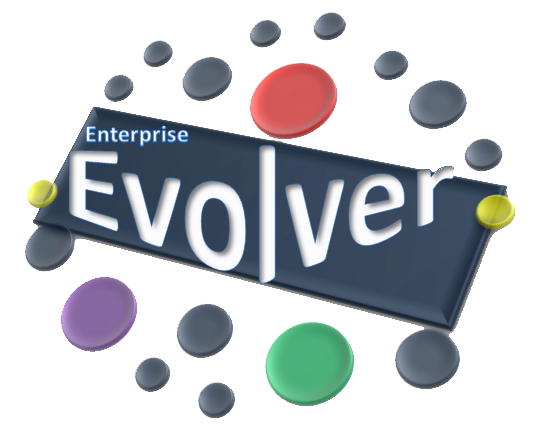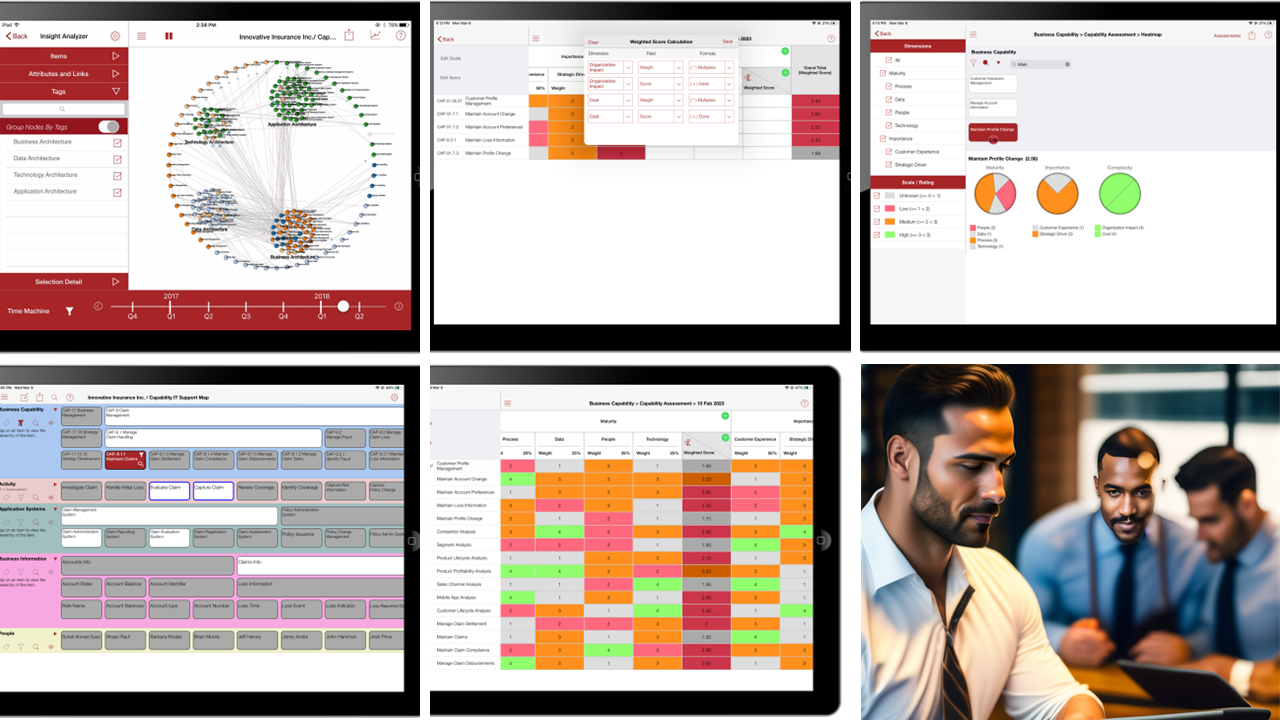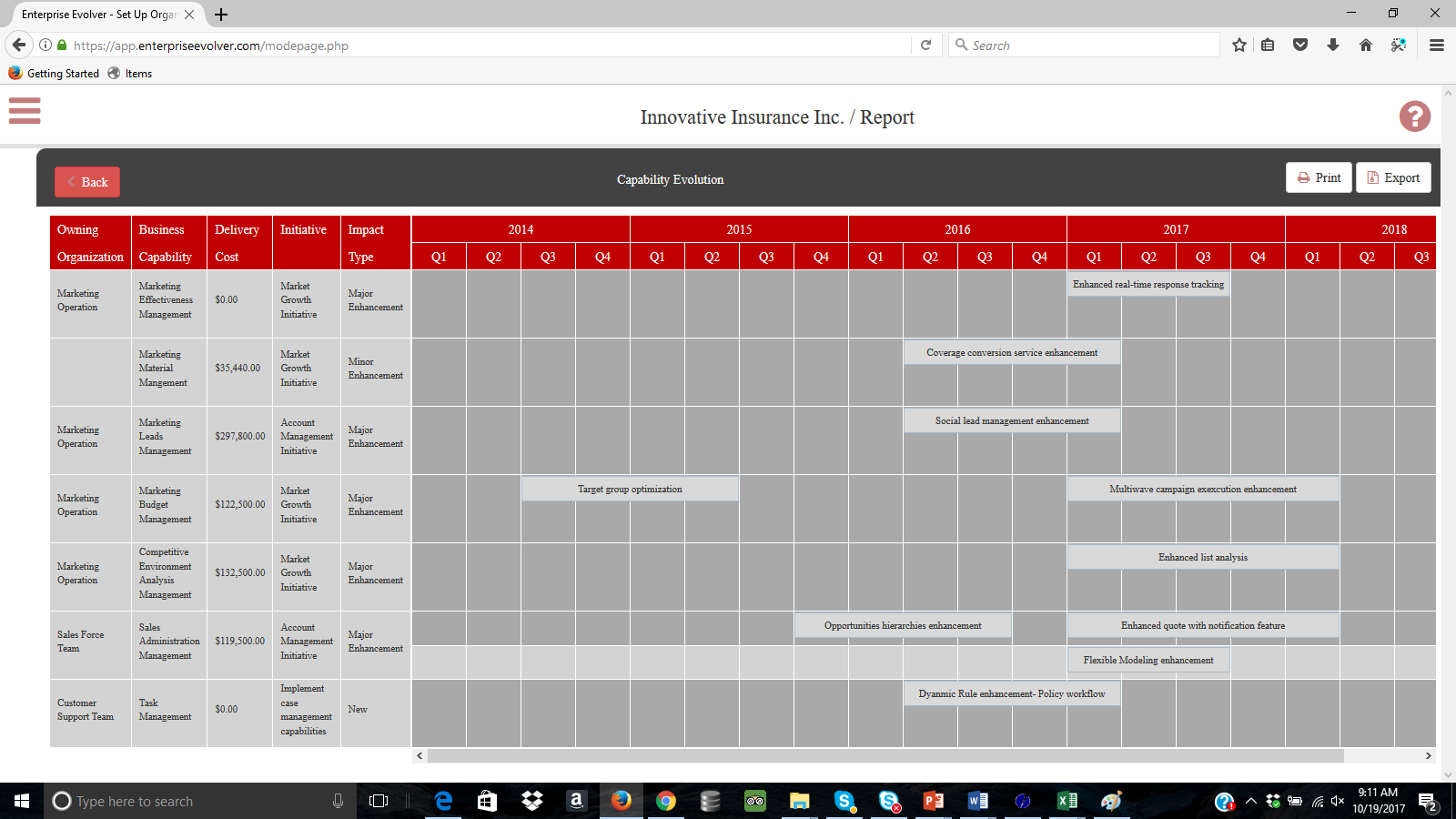Evaluating a business capability model using attributes such as maturity, importance, and complexity can provide several benefits for the organization, including:
- Prioritization: By assessing the maturity of the capability’s process, technology or skills of people, and the importance of each capability, organizations can prioritize which capabilities to focus on first, and which area (e.g. process, people, technology etc) of the capability requires improvement.
- Resource allocation: By evaluating the complexity of each capability, organizations can allocate resources more effectively and efficiently to ensure the successful implementation of each capability.
- Developing Roadmap: Once the capability’s areas for improvement are identified, business strategists can develop a roadmap for improving the important capabilities of the organization. The roadmap can be used to prioritize initiatives and allocate resources accordingly. Capabilities which are not complex in nature can be considered a quick win.
- Mitigating Risk: Evaluating business capabilities can also help organizations identify areas of risk. By identifying areas (e.g. process, technology, data, people’s skills) that are not mature, organizations can take steps to mitigate risk and prevent potential problems from occurring.
- Enhancing competitiveness: Evaluating business capabilities and then creating initiatives to improve business capabilities can help organizations become more competitive. By improving processes, leveraging technology, and developing the skills of employees, organizations can differentiate themselves from their competitors and improve their ability to meet the needs of customers.
- Improving business performance: Finally, evaluating business capabilities can help organizations improve their performance. By improving processes, leveraging technology, and developing the skills of employees, organizations can increase efficiency, reduce costs, and improve the quality of their products and services.
- Continuous improvement: By regularly evaluating the capability model using these attributes, organizations can identify areas for improvement and make adjustments to their business processes, technologies, and strategies to improve overall performance.
Overall, evaluating a business capability model using its attributes like maturity, importance, and complexity can help organizations make informed decisions, prioritize efforts, allocate resources effectively, manage risks, and continuously improve their business capabilities to achieve their strategic goals and objectives.
Maximizing performance, and unleashing your organization’s potential with a thorough evaluation of your business capabilities using your personal capability modeling app.
Watch how you can quickly create a capability model for your organization and evaluate capabilities to make decisions and develop a strategy using your personal capability modelling app.
Stay ahead of the game: Enhance your competitiveness with a maturity level assessment of your business capabilities; evaluate to elevate!
Click here to download the app.
#BusinessCapabilitiesMaturity
#ImprovingBusinessPerformance
#RiskMitigationStrategies
#CompetitiveAdvantage
#RoadmapToSuccess
#strategy
#strategicplanning
#enterprisearchitecture
#businessarchitecture
#digitaltransformation





